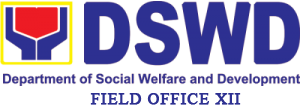PALIMBANG, Sultan Kudarat—Teacher Lynie Alameda, 36, will no longer hold classes for her 60 out-of-school youth learners in a dilapidated building where they jostle for space and complain the lack of materials and facilities for education for many years.
The Department of Social Welfare and Development in Region 12 has turned over recently a P1.77 million worth of community learning center with ameneties in Barangay Poblacion funded through the agency’s community-driven development program, Kalahi-CIDSS.
“We are happy that our government has funded our long-awaited community project. This will be of great help in response to our mandate that ‘no child or person’ will be left behind in terms of education,” Alameda said.
The newly-built learning center, with well paved and well painted classrooms now greets eager out-of-school youth learners of Palimbang, far from the dilapidated, overcrowded and makeshift learning facilities they used to for many years.
“There were programs for out-of-school youth before like livelihood and skills training but because we don’t have venue for conducting it, they were given to other barangays. This project will open more opportunities to our community, Alameda said.
Gemma Rivera, DSWD 12 assistant regional director for operations said that this project is an example that the needs of various sectors are given attention and needs are addressed through participatory, transparent and strong sense of ownership of the villagers.
“When community drives their own development through giving the power to have control over their resources and decision-making, the pressing needs are being addressed,” Rivera said.
Rivera said that the learning center in Poblacion is just one of the completed projects of the agency through Kalahi-CIDSS Program. Rivera added that the Palimbang town has benefited 65 community projects amounting to P82.2 million since 2014.
“On the top of this amount, is our goal to empower ordinary individuals to be active actors of their community development like what teacher Lynie and the community did,” Rivera added.
Kalahi-CIDSS is one of the poverty-alleviation programs of the government that is being implemented by the DSWD. It uses the community-driven development (CDD) approach, which enables communities in targeted poor and disaster-affected municipalities to identify their own needs, and collectively implement and manage solutions to these needs. (Hilbert T. Estacion)
